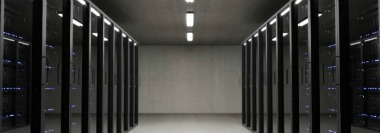Computer servers are crucial in providing functionality for other devices or programs known as “clients”. If you’re clueless about it, it is actually a computer program that supports other computer programs whether they are on the same computer or not. There are various types of servers including the web server, application server, proxy server, virtual server, blade server, file server and policy server. They all serve a specific purpose and are indispensable tools in storing valuable data.
 Today, cloud technology dominates the world. When it comes to computer servers, they are also copying the technology of the cloud that has no shape and is always changing. Data centers are likewise gearing towards the use of energy efficient equipment that is not sensitive to the changing weather or temperature fluctuations.
Today, cloud technology dominates the world. When it comes to computer servers, they are also copying the technology of the cloud that has no shape and is always changing. Data centers are likewise gearing towards the use of energy efficient equipment that is not sensitive to the changing weather or temperature fluctuations.
Iliad’s cloud hosting division Scaleway is launching a new type of server today. In just a minute, you can launch your server with its own dedicated ARMv8 processor, 2GB of RAM, 50GB of SSD storage and unlimited bandwidth. And it only costs around $3.25 per month (€2.99).
If you’re not familiar with processor architecture, your computer and your smartphone use two different chipsets. Your laptop uses an x86 CPU manufactured by Intel or AMD, while your smartphone uses an ARM-based system-on-a-chip.
ARM-based devices don’t need a lot of cooling and are quite efficient when it comes to power usage. And they are also becoming increasingly powerful. That’s why it’s a smart bet to use those chips for servers.
In many ways, using Scaleway as your cloud hosting provider feels like using DigitalOcean, Linode or any typical VPS provider. But there’s a big difference as Scaleway provides BareMetal servers (and a few virtual server options as well).
(Via: https://techcrunch.com/2017/04/27/scaleway-thinks-the-future-of-cloud-hosting-is-arm-based-servers/)
Unfortunately, the need for physical computers is likewise decreasing as more businesses make use of the cloud unless they really have excessive data storage needs. However, virtual servers are increasing in demand right now.
It’s been a long while since we’ve seen any meaningful update to Apple’s iMac line, but as the company revealed a few weeks ago, there are some new and exciting updates in the works.
As Apple executives told a handful of journalists recently, the company is working on a brand-new iMac Pro model. And while the company didn’t provide any significant details, they did make a point of stressing that a touchscreen iMac is notin the works.
“Touch doesn’t even register on the list of things pro users are interested in talking about,” Phil Schiller said. “They’re interested in things like performance and storage and expandability.”
Now comes word via Digitimes that Apple’s new iMac Pro models—which will still measure in at 21.5 and 27-inches—will feature “server grade” internals.
(Via: http://www.networkworld.com/article/3190672/consumer-electronics/imac-2017-rumors-release-specs.html)
Like the influential innovator that it is, Apple continues to dream big with plans of beefing up storage capacities of iMac models in the future by equipping it with server-grade internals. We don’t even have to wait long to see these high-tech gadgets with our own eyes as production have probably already started this month. Apple users are probably excited about this upgrade since many complain about the lack of meaningful updates to their computer line for a while now.
Another type of server you should be aware of is RAID servers. It is popular among small business owners and has been all the rage several years ago when hard drives used to be so costly and less capacious. If you’re still stuck with it now and it is failing you much to your horror, https://www.harddrivefailurerecovery.net/raid-recovery/ may give you some insights on what to do to retrieve important data you’re afraid you might have already lost. If you are using a more modern one with an SSD instead of the traditional hard drive, learn more about problems you may encounter through this link: https://www.harddrivefailurerecovery.net/the-harsh-realities-of-ssd-drive-failure/.
